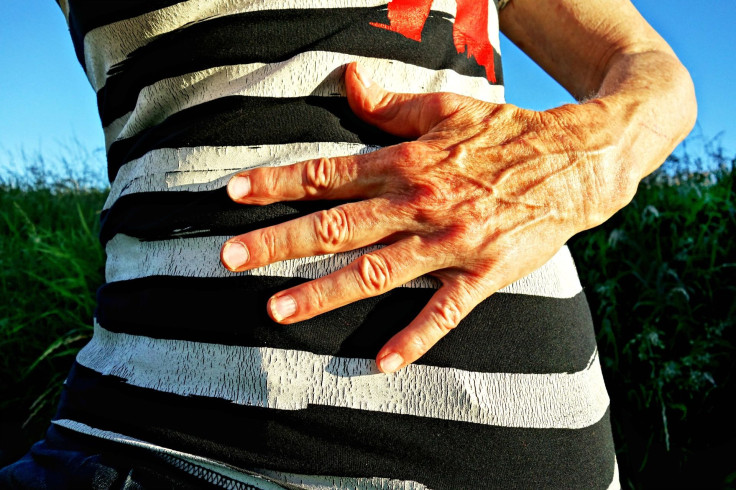What Is Gastritis? How To Reduce Inflammation In Stomach, Heal Cramps, Nausea, And Gas

Gastritis is becoming more common and ruining everything from happy hour to holiday parties, according to Fix.com. It is essentially inflammation of the stomach lining and causes stomach cramps, nausea and gas - not exactly conducive to social situations.
Read: What Is Leaky Gut Syndrome? The Truth On This Condition And How To Fix It
Fix says there are two types of Gastritis. The first is caused by taking nonsteroidal anti-inflammatories like ibuprofen, while the second is an infection caused by the Helicobacter Pylori bacteria. Our stomach lining produces acid and enzymes that help break down food, but when the lining isn't functioning properly, they are no longer produced in the quantities we need.
The irritated stomach lining results in those uncomfortable symptoms. Typical signs of Gastritis include abdominal pain, gas, bloating, burping fatigue and burning in the throat. Of course, what you eat can definitely play a role.
If you show signs of these problems, consuming soda, coffee, sugar, energy drinks, corn, soy, processed foods, trans fats, sweets and grains can make them worse. Non-food factors like smoking, obesity, stress and drugs also exacerbate the problem. These all change the PH balance in your stomach, which regulates the enzymes and acids produced by the body.
There are also foods that help alleviate Gastritis. Fix recommends antioxidant-rich foods that have an alkaline PH. They suggest ginger, beet juice, turmeric, oregano, cranberry juice and blueberries, among other foods.
Read:Cancer Risk Latest News: Esophagus And Stomach Cancer More Likely If You're Overweight By 20
If a combination of omitting foods that trigger discomfort and adding foods that are good for the stomach don’t work, you can also try chewable papaya or Bromelin capsules. Probiotics, which are basically good bacteria and come in capsules or drinks, are another gut-healthy food that are recommended.
See Also:
Birth Control Side Effects 2017: Bloating, Nausea, Allergies And More; Contraception Isn’t Risk-Free



























